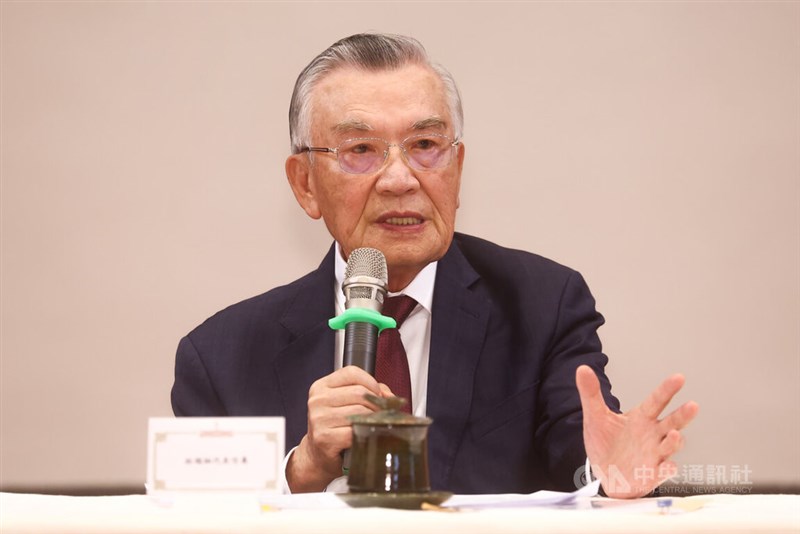
Taipei, Nov. 3 (CNA) Taiwan's "visibility" at the Asia-Pacific Economic Cooperation (APEC) summit improved this year, with many member economies seeking cooperation in several advanced technology fields, according to Lin Hsin-i (林信義), Taiwan's envoy to the 2025 APEC Economic Leaders' Meeting.
"Compared with the past, when Taiwan needed to invest far more effort to attract foreign investment and cooperation, many economies now approach us without much prompting," Lin said at a press conference held by the Office of the President on Monday.
The envoy, who now serves as an advisor to the president, said he sensed an atmosphere this year of "when the flower blooms, the butterfly comes naturally."
He said he held "constructive exchanges" with many leaders and delegation members, who expressed willingness to cooperate with Taiwan in semiconductors, ICT, medical technology, and SME development, Lin said.
"These interactions not only enhanced Taiwan's visibility but also laid a solid foundation for future substantive economic and trade cooperation," Lin said.
The 78-year-old Lin represented President Lai Ching-te (賴清德) at this year's APEC Leaders' Meeting in South Korea, which concluded on Saturday.
Even though Taiwan is a full APEC member, its president is not able to attend the APEC Leaders' Meeting because of Chinese objections and political pressure and appoints a special envoy in their place.
This year's APEC discussions focused on technological innovation, supply chain security, and artificial intelligence (AI), with South Korea highlighting AI and demographic change as major themes, Lin told reporters.
He said the international economic order is facing uncertainty due to geopolitical changes, supply chain restructuring, technological transformation, and climate change.
According to Lin, President Lai instructed the delegation to emphasize three key themes to the international community.
First, Taiwan is committed to strengthening economic resilience and promote regional economic development.
Second, Taiwan is willing to share its experience in leading industries.
Third, Taiwan is accelerating efforts to promote people-centered AI development, Lin said.
Taiwan continues to promote AI applications across industries through public-private cooperation, Lin said, some of which he highlighted at the meeting.
Among them were an AI and aging economy project by Acer that uses facial recognition to detect dementia with an accuracy rate of 86 percent, and a smart health care project led by Quanta Computer Inc. that trained 150 participants from 17 economies to use AI tools this year, according to Lin.
Another project was one by Taiwan Mobile Co. that helped 2,000 small and medium-sized enterprises conduct cybersecurity assessments across 21 economies, Lin said.
The National Science and Technology Council also has developed an AI-based high-precision weather model that improved forecast resolution from 25 kilometers to 2 kilometers.
Lin said that when Typhoon Gaemi struck in 2024, the model clearly depicted the typhoon's structure and improved forecast accuracy, allowing central and local governments to deploy preventive measures early and reduce disaster losses.
- Business
German investment in Taiwan surges 264 percent year-on-year
01/28/2026 08:21 PM - Business
Taipower posts profit in 2025, accumulated loss hits NT$350 billion
01/28/2026 07:52 PM - Society
Swiss-Taiwanese entrepreneur brings Taiwan boba to Finland
01/28/2026 07:47 PM - Politics
Control Yuan President Chen Chu resigns
01/28/2026 07:35 PM - Politics
Ko Wen-je to head party institute in TPP leadership reshuffle
01/28/2026 07:26 PM